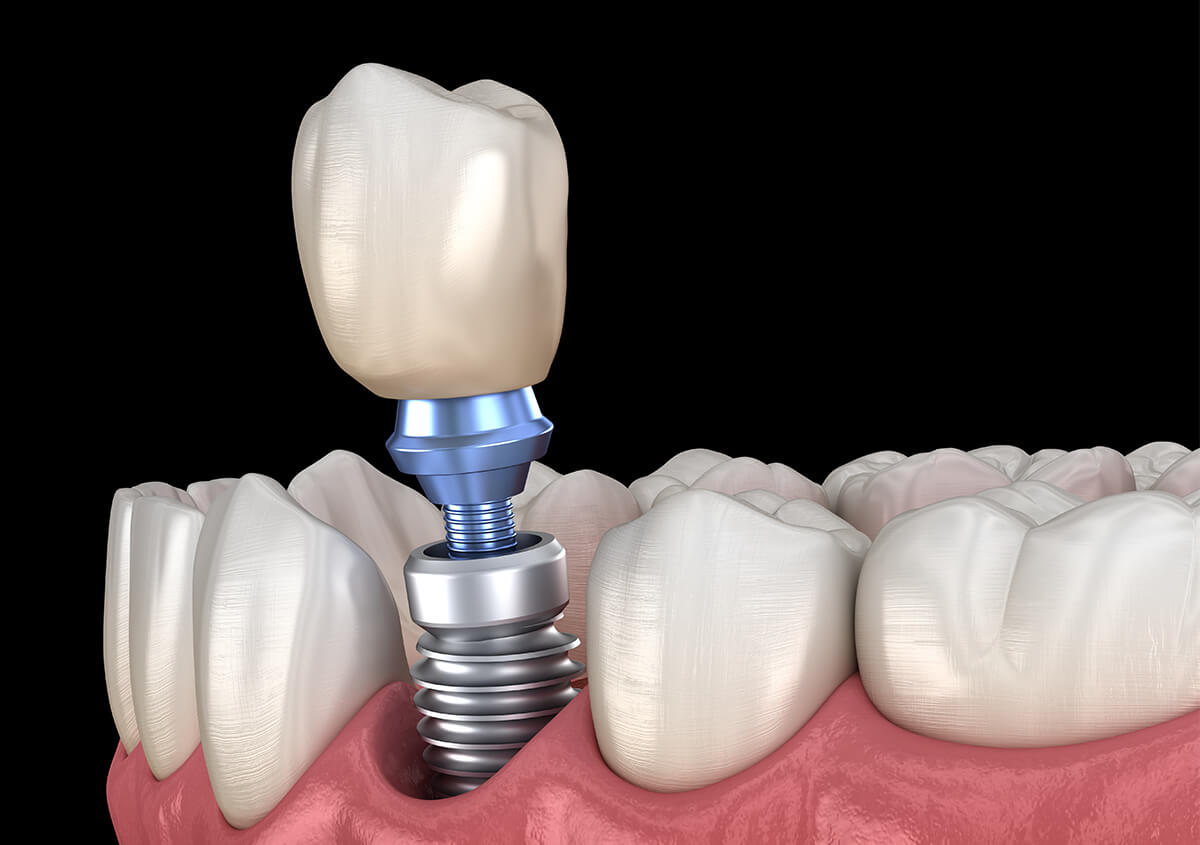Restore Missing Teeth with Natural, Beautiful Looking Dental Implants
When you lose teeth, there is likely only so long you can go about hiding your smile. Your smile is meant to shine, not be hidden due to missing teeth. Missing teeth not only present cosmetic problems but, depending on their location, could impact your ability to speak and chew. Replacing missing teeth with natural-looking dental implants will allow you to bring your smile back into the limelight! Visit Dr. Cooper and our team at Cooper Dental Group in Ormond Beach, Florida, to learn more about how dental implants can restore your smile.
Dental Implants
When you lose a tooth, you lose not only the crown above the gumline but also the supporting root below the gumline. The tooth’s root plays a vital role in the health of your jawbone and also provides the strength needed for proper chewing. When you lose a tooth, you risk long-term oral health complications, including shifting teeth and jawbone degradation.
A dental implant is a step above other tooth replacement options because it replaces the entire tooth, both above and below the gumline. This preserves jawbone health through a process called osseointegration. This process occurs once your implant has been surgically implanted into the jawbone. The jawbone and implant will fuse together, creating a strong anchor while allowing jawbone preservation.
Once this process has been completed, an abutment will be added to the implant, and your restoration (a dental crown) will be affixed to the abutment.
We offer diverse implant options to replace missing teeth to help facilitate your care:
- Single tooth implant – Each missing tooth is replaced with its own implant and dental crown restoration
- Multiple tooth implants – We can create an implant bridge to replace several teeth in a row
- Full mouth implants – We offer implants to replace all of your teeth using custom-fitted implant-supported dentures as your restoration
- Mini dental implants – These implants are smaller than traditional implants and are more conducive for patients with narrow ridges or who don’t meet the requirements for conventional implant surgery

Dental implants are titanium roots, that are replaced with in the jawbone to resemble a tooth or group of teeth. A screw is inserted through the gums and into the jawbone. A porcelain crown is then attached to the screw to become the new tooth or teeth. They can be used to support dental prosthesis including crowns, dentures, and bridges. Today’s treatments are so natural looking, no one will know you had surgery. There’s approximately a 95% success rate for all implants. With modern advances in dentistry, some implants can be restored immediately with life like all porcelain crowns. For more details ask your dentist.
The Benefits of Dental Implants
Dental implants have a natural look while providing the function and feel of a natural tooth. There is no more beautiful way to restore your smile. Once you get a dental implant and have a complete smile, you won’t be able to help but show off your smile at every opportunity. And, unlike with traditional dentures, you can chew all of your favorite foods without worrying about slippage. Implants will also preserve your bite, tooth alignment, and jawbone, giving you much to smile about for years to come.
Are you interested in dental implants? If so, contact Cooper Dental Group in Ormond Beach, FL, today by calling 386-244-9838.




